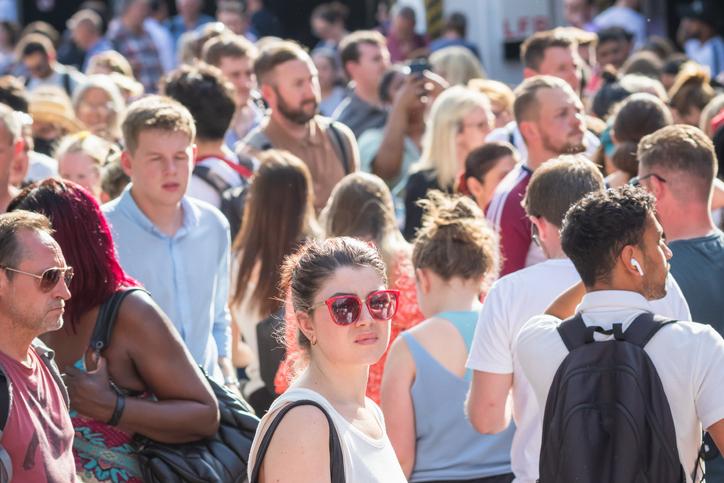
How to harness community knowledge to tackle complex policy challenges

Producing the knowledge and evidence that shape our everyday lives is conventionally the domain of university and government scientists. Citizen science is changing that. From surveying wildlife to planet spotting for Nasa, a plethora of citizen science projects now invite the public to take part in scientific research. These projects have shown that involving the public in science can hugely expand the reach and possibilities of research. The public’s involvement in the ZOE Health Study, for example, rapidly provided greater understanding of the spread and effects of Covid-19, with crowdsourced results published in respected academic journals such as The Lancet.
Yet, less than 2 per cent of citizen science projects are rooted in the social sciences, suggesting a missed opportunity to use this powerful way to target complex social and economic problems. At the UCL Institute for Global Prosperity (IGP), we believe that involving the experiences, knowledge and expertise of local people is the key for change. Our Citizen Science Academy was developed to work with local communities and connect the public with policymaking.
- THE podcast: unlocking people power through citizen science
- Collection: The power of place-based learning
- What is needed to run a successful outreach programme?
This article explains the process and results of setting up a citizen science project, using Good Life Euston in London as a case study.
Inclusion, empowerment and impact: key principles for facilitating citizen science
Citizen scientists are recruited through local voluntary and community organisations that are trusted and ingrained in their community and therefore can reach recruits universities typically would not.
Through training programmes at the Citizen Science Academy, and by using a citizen social science approach, we empower residents to get involved in social action and local decision-making to create change within their own communities.
This approach to conducting citizen social science involves:
- partnering with organisations who can connect results directly into local decision-making
- teaming with voluntary and community sector groups who have the trust and local knowledge to make research that connects with local citizens
- training citizen social scientists in practical research methods through a practice-led, community-based approach
- demonstrating the value of citizens’ contributions through financial reward, and through welcoming their input at all stages of a project, from planning to the presentation of outputs
- establishing avenues for ongoing collaboration and involvement with citizen scientists to make citizen social science transformative for not just academic practice but citizens’ lives, too.
Our academy has moved from a crowdsourcing approach, where volunteers collect data for large-scale scientific projects, to locally based projects that are designed by citizens and academics, who collaborate to collect, analyse and act on research findings.
The academy has been co-designed with community partners, citizen scientists and policymakers to understand the barriers to involvement in research for local residents, such as finding routes that allow us to reward them financially (rather than relying on volunteers), which increases inclusivity. Collaborating with policymakers also helps us understand how they want to use the research alongside other forms of evidence, so we can develop outputs of direct practical use to them.
Citizen social science: the example of Good Life Euston
How do we put the principles underpinning our projects into practice? Good Life Euston is a good example. This project involves the IGP, Camden Council, local voluntary organisation Camden Giving, Lendlease (the global construction company redeveloping Euston Station), The Euston Partnership and 22 citizen scientists who designed and conducted research to help establish what prosperity means to people living in Euston, London. The research aimed to contribute to improving the lives of those citizens producing the work.
Camden Giving, which already had strong connections to both the local community and Camden Council, recruited the citizen scientists, and we trained them to carry out qualitative research within their own locality. They did walking ethnographies, interviews with residents and mapping activities, and the resulting data was coded and analysed, feeding into the development of the Good Life Euston Model, a tool to inform regeneration planning in the area.
Enhancing research impact through a more inclusive approach
The cohort were taken through a high-quality, practice-led training programme, leading to the awarding of a UCL Citizen Science Certificate, a new community-based, non-academic certification.
By including the citizen scientists not only in the development of research questions but also in post-data analysis, the project demonstrated that their input is valued, and their research directly contributed to recommendations put to local councillors and developers.
A focus on valuing the citizen
Our citizen social science approach is not light touch. It can’t be. It involves asking local people to explore their communities, engage with underserved groups, build up trust with residents, and produce engaging and personal outputs.
For this kind of methodology to be inclusive, academic researchers must demonstrate they value the work of citizen social scientists in terms of appreciation and money. Each of the 22 citizens engaged on the Good Life Euston project was employed and paid the London living wage (which is now about £13 per hour) throughout their training, research and for presentations to decision-makers. They are also credited as named citizen scientists in project outputs and awarded with a UCL Citizen Science Certificate. And, ultimately, it helps them in pursuing career pathways.
This emphasis on citizen scientists as key stakeholders in the project breaks down barriers and means that for those who take part, citizen science can be a transformative process.
The value provided by our citizen scientists in Camden is demonstrated through the council’s commitment to further citizen-led research. A new 12-month Citizen Scientists-in-Residence course will focus on the council’s Community Wealth Fund and Tenant Engagement programmes, and new forms of embedding citizen science in planning policy are being trialled. This is all while developing the kinds of research that only locals can produce.
Saffron Woodcraft is executive lead for the Prosperity Co-Lab UK (ProCol UK), principal research fellow and director of social policy at the Institute for Global Prosperity (IGP) at UCL. Joseph Cook is the Citizen Science Academy lead at the IGP.
If you would like advice and insight from academics and university staff delivered direct to your inbox each week, sign up for the Campus newsletter.


